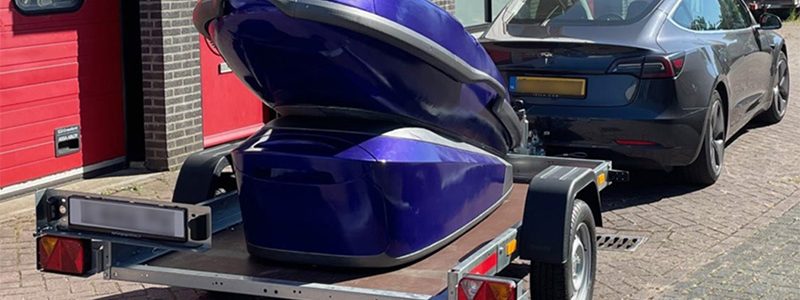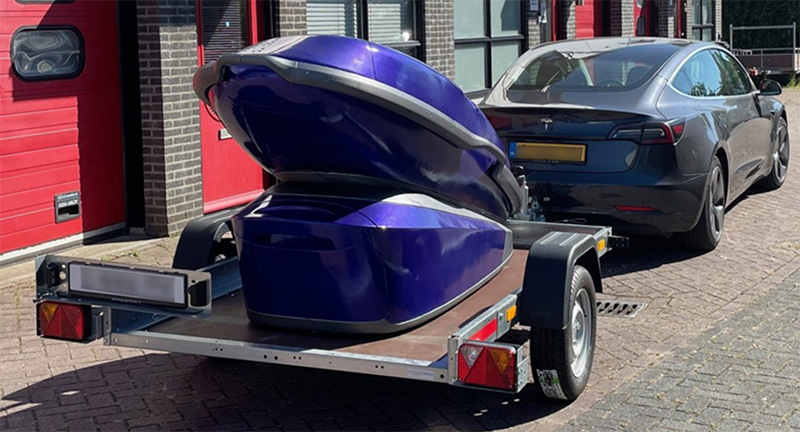Sarco Project – August 2022 Update
The Sarco Project is an integrated plan to use new technologies to alter the experience of death. The goal is to place the person who wishes to die center stage with unrestricted control of the process. In particular the project aims to remove any need for any specialized or medical involvement.
There are several components to the Project:
- Construction of a 3D printed Sarco to provides a peaceful hypoxic death
- Programming of Sarco Raspberry Pi software to allow access to the machine
- Development of AI screening to ensure those seeking access have mental capacity.
- Development of an implantable switch for those anticipating mental capacity loss.
This update provides information on the current state of each of these components.
- Construction of the 3D printed Sarco
Sarco#1 and Sarco #2 have been 3D printed but are non-functioning. Sarco #1 will be towed to Geneva on a special trailer in mid September and go on public display as part of OpenEnd 2 “Renegotiation” held @ Cimetiere des Rios opening Thurs Sept 15.
Lessons learnt in the construction of #1 & #2 have been incorporated into the production of Sarco #3 which is the device to be used in Switzerland. Sarco #3 has been printed in Rotterdam and is currently being assembled. Some of the specialised components needed in construction are yet to be delivered – eg the vacuum moulded Perspex canopy and cantilever hinge mechanism. Once assembled the unit will receive professional finishing before being moved to our Hillegom laboratory where instrument testing, imaging using a thermal camera, and gas analysis will take place. This is expected to be completed by late October and the machine will be available for inspection at this time.
- Programming of Sarco Raspberry Pi software to allow access to the machine
Control software that requires the person seeking to use Sarco to answer 3 basic questions before activation has been written for the incorporated Raspberry Pi processor. The questions that need to be answered are 1) Who are you? 2) Where are you? and 3) Do you know what will happen when you press the activation button inside Sarco? Answers are provided verbally and by text and recorded before relay activation of Sarco power takes place. A number of programming errors have delayed completion of this part of the project although this should be resolved by the end of September. •
- Development of AI screening to ensure those seeking access have mental capacity
This is considered an essential part of Sarco Project as it offers the possibility of removing the need for a medical professional to carry out the essential assessment of mental capacity in a person seeking death. The goal is to develop the test that will provide a functioning 4 digit key that will give 24 hours of access to the Sarco startup.
There has been very little support for the concept of AI assessment from the large number of psychiatrists contacted for advice on this project, indeed considerable skepticism has been expressed. Some preliminary programming has begun based on advice from experienced AI developers and some form of elemental screen incorporating a mini mental state cognitive assessment and a set of questions to assess insight will be functioning in 2023.
The absence of this part of Sarco project will not delay the planned use of the device. In the initial stage the assessment of mental capacity will be carried out by the more traditional means, using psychiatric review.
- Development of an implantable switch for those anticipating mental capacity loss.
This part of the project is essential for those who are experiencing a real or expected decline in mental capacity from dementia or other disease. At present the only strategy offered to address this is the completion of a witnessed advance directive that, in some jurisdictions, allows legal assistance to die even for those with no capacity. This is an unsatisfactory solution.
A programmed implantable switch that can be activated while one has capacity and designed to end life after a preset period, unless reset by the owner, offers an important solution. Currently the project has stalled, beset by a number of practical problems.
Two simple strategies are being pursued:
- Programable de-activation of the auto defibrillation function of some implanted pacemakers.
- The use of an implanted RFID chip preset to activate (for example) a Sarco.


